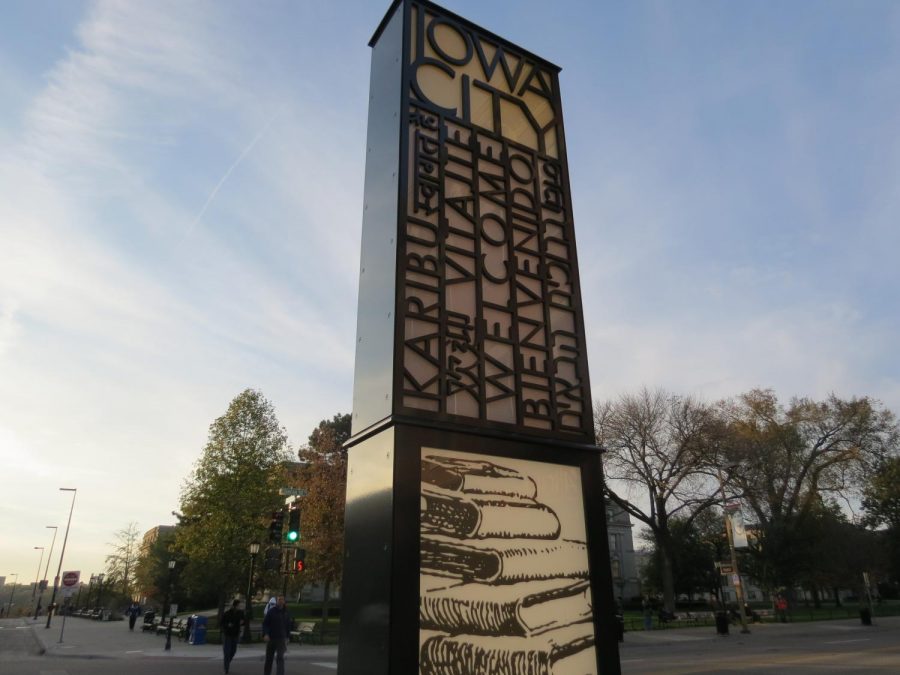Read on, Iowa City
Iowa City wishes to remain a UNESCO designated ‘City of Literature’ despite US decision to withdraw from the United Nations agency.
November 9, 2017
Iowa City has been a UNESCO (United Nations Educational, Scientific, Cultural Organization) designated ‘City of Literature’ since 2008. This unique distinction is an incredible accomplishment and an irremovable part of the city’s identity. When the State Department announced on Oct. 12 that the United States will be leaving the Organization, many citizens were shocked. Heather Nauert, State Department spokesperson, said UNESCO’s supposed anti-Israel bias and $550 Million in unpaid dues were put into consideration while making the decision. By the end of 2018, United States will become a non-member observer state for a second time, the first being in 1984 under the Reagan Administration. Iowa City subsequently voiced their support of UNESCO and their disapproval of the current administration’s decision.
The controversial decision outraged many people throughout the community. Acclaimed poet and director of the University of Iowa International Writing Program Christopher Merrill said the decision deeply disappointed him because UNESCO helped to bring Iowa City to the forefront of international communication. “We are now in conversation with literary organizations from all around the world at the level of UNESCO, and that’s a really wonderful position to be in,” Merrill said. “[UNESCO] cements into the public mind the centrality of Iowa City as a place where great writing begins, and it also connects us to the larger Creative Cities Network.” The Creative Cities Network is a UNESCO program that seeks to celebrate and elevate world cities with vast creative talent. Because Iowa City meets the many requirements for the ‘Literature’ designation, it enjoys the program’s many benefits.

Melody Dworak, Librarian at the Iowa City Public Library, said “[the designation] gives our city an identity that we love.” The decision upset Dworak. “It seems there is no respect for the good parts of the world. Global literacy isn’t important to certain people. It’s just a crying shame to me that there isn’t greater support for good things.” She knows many creative people that moved here because of their dreams about writing and telling their own stories. According to Dworak, “[Reading] is all about telling the stories that are important to understanding our world,” and that it gives people “the mental fortitude to strive through that next challenge.”
The community has rallied around UNESCO to uphold our ‘City of Literature’ designation. John Kenyon, the local director of Iowa City’s UNESCO offices, commented that “[The current situation] has been that of universal support. If there is any silver lining to this, it is the fact that it has shown that people in our community really care about this designation.” Despite overwhelming desire to stay within UNESCO, the organization has not officially commented about the status of US ‘Creative Cities’ and whether or not such designations will be revoked. Kenyon commented that “It is not our decision to make, we would continue on as we have, but there are obviously greater forces that could decide our fate.”

“Reading and writing is still the best way for the broadest number of people to learn about one another.” Kenyon said “Not everyone has the luxury of being able to go and visit other countries, other places, and interact with different people and have different experiences. Once you crack open a book where someone has shared their experience with you, then you can start to learn a little bit more about who they are and why they do the things that they do. [Reading] helps to build empathy in people, and empathy is something that we so desperately need in this world.”
Although Iowa City’s future relationship with UNESCO is uncertain, The city still remains comited and hopeful. The City of literature’s published statement regarding US actions reads, “work by our writers, editors, publishers, librarians, booksellers, students, teachers and all others involved in the literary life of our community is more important than ever.”
Click here to read UNESCO’s official statement regarding the US decision.



